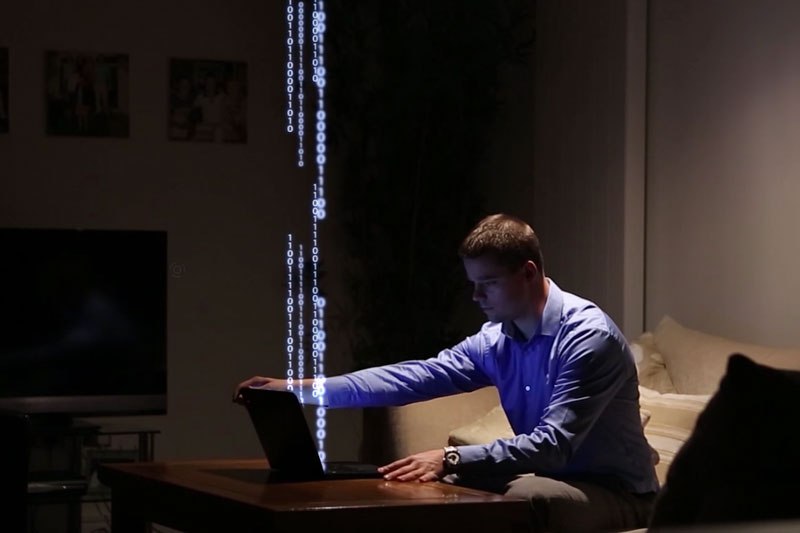If Thomas Edison raised his head perhaps, he is surprised that most recognizable his invention, the light bulb, years later not only serves to enlighten humanity physically, but also intellectually to bring Internet access. That is at least what promises Lifi, a new technology that promises to provide broadband Internet connection through electricity. Visit http://generationguy.com/ for more tech news.
College to 224 gigabits speed
We must go back to 2011 to hear for the first time speak of Lifi of mouth is considered its inventor, a university professor named Harald Haas, a professor at the University of Edinburgh.
In some academic laboratories that are working on developing Lifi ensures that have come as uperar 224 gigabits per second speed. This has led many owners say Lifi is up to 100 times faster than current WiFi connections. However, considering that the standard Wi-Gig (IEEE 802.11ad) supports speeds of up to 7 gigabits per second, this fact is not entirely true. In any case, speed is quite considerable.

Give me a bulb and take Internet to everyone
The interest in developing this new wireless communication system is that it provides many advantages over traditional WiFi networks.
Visible Light Communications (VLC), name that is also known to Lifi, only needs a light source (such as LED bulbs) instead of a radio frequency, a network connection and a detector to operate, so almost any bulb could serve as a connection point. Proponents of the technology argue that the spectrum of light is more abundant than radio, unlicensed and that their use is free.
On the one hand, we would have less interference, since we can use any bulb to propagate the connection. Something, which also makes needed not regulate frequency bandwidth to use as channels for data transmission over the Internet.
It is also considered to have much more security than traditional wireless connections, since light cannot pass through the walls, which would make it impossible for closed room information escaped and others may intercept. However, this in turn is a problem of intercommunication between different access points (or bulbs).
Another important aspect is that this wireless communication system is incompatible with natural sunlight, which could cause certain problems in certain situations.
Besides, since light is a very widely available, just a high investment in infrastructure is needed to bring Internet access anywhere.
Democratize access to Internet
Many are those who are challenged to bring the Internet to the entire population of Earth. If we look at the data, America is the world region that has a higher proportion of internet access, with almost 88%. At the other end of the scale, it is located at Africa, where there is no one out of every three people who already have Internet access.
The development of these new wireless technologies could facilitate the spread of Internet and that everyone could access the network of networks, since it is not necessary to invest in major infrastructure but suffice to use the bulbs to enter the network networks.
It is estimated that there are nearly half a million people in spain who do not have internet access or cable or air…
Even in areas with more development of Internet access, the development of Lifi allow users would 260,70 million new -as long as these could afford the costs involved Lifi. Not surprisingly, keep in mind that even in our country there are rural areas whose geographical difficulty there is complex to carry Internet, either through cable or through wireless systems. It is estimated that there are almost half a million people in our country who do not have Internet access or cable or air.
Although the benefits and possibilities of Lifi are very spacious, one of the biggest challenges it faces it is the commercial development that currently has. Faced with a wide range of WiFi devices that we can find on the market, the fact is that there is still no commercially available product Lifi. When the first are possible that are still a bit expensive. Moreover, contrary to government agencies that are taking care of development and standardization of WiFi in Lifi several consortia (such as Li-Fi Consortium or Li-Fi Center) that are fighting to establish what should be these common guidelines for development of this technology.
You may also like to read another article on YellowTube: When laptops no longer so hot?
Why Internet is so important?
As we saw earlier, more than half the world’s population still cannot connect to the Internet, in total 4.200 million people. Everyone can have this connection it is important, both economically and socially.
According to McKinsey, the Internet accounts for 21 percent of GDP growth in developed economies over the past five years. Even the Harvard University School ensures that only on the social level, it is difficult to quantify the impact it has had on the United States that allows Internet access more information and have more flexibility.
As a study of PewGlobal, to greater economic development, greater percentage of the population that accesses the Internet.
But according to the World Economic Forum, while nearly 100 percent of the population has a mobile, there are still many people who, having the ability to access the Internet, does not and referred to as important is the development of the information infrastructure and content .
In any case, there are several studies that, for years, are addressed and putting black on white the importance of the Internet for economic and social.
An achievable dream
One of the most recognized and today is the Mark Zuckerberg, CEO of Facebook, known as Internet.org, who has even pointed at MWC most importantly bring the Internet to everyone that promote 5G.
However, not all look favorably on this initiative, especially some of the countries that could most benefit from it. This is the case of India, who does not want the project reaches its country in considering that net neutrality is at risk.
Google also has launched its Loon For All, with which it aims to popularize Internet via balloons. The explosion of some of the balloons even caused the panic in New Zealand thinking people who could of a plane crash.
Faced with all these initiatives, promoted by private companies, the option Lifi seems safer and likely: no particular company stands behind its promotion and penalties minimum investment is required to achieve the dream that all people, regardless of where live, can access the Internet.
